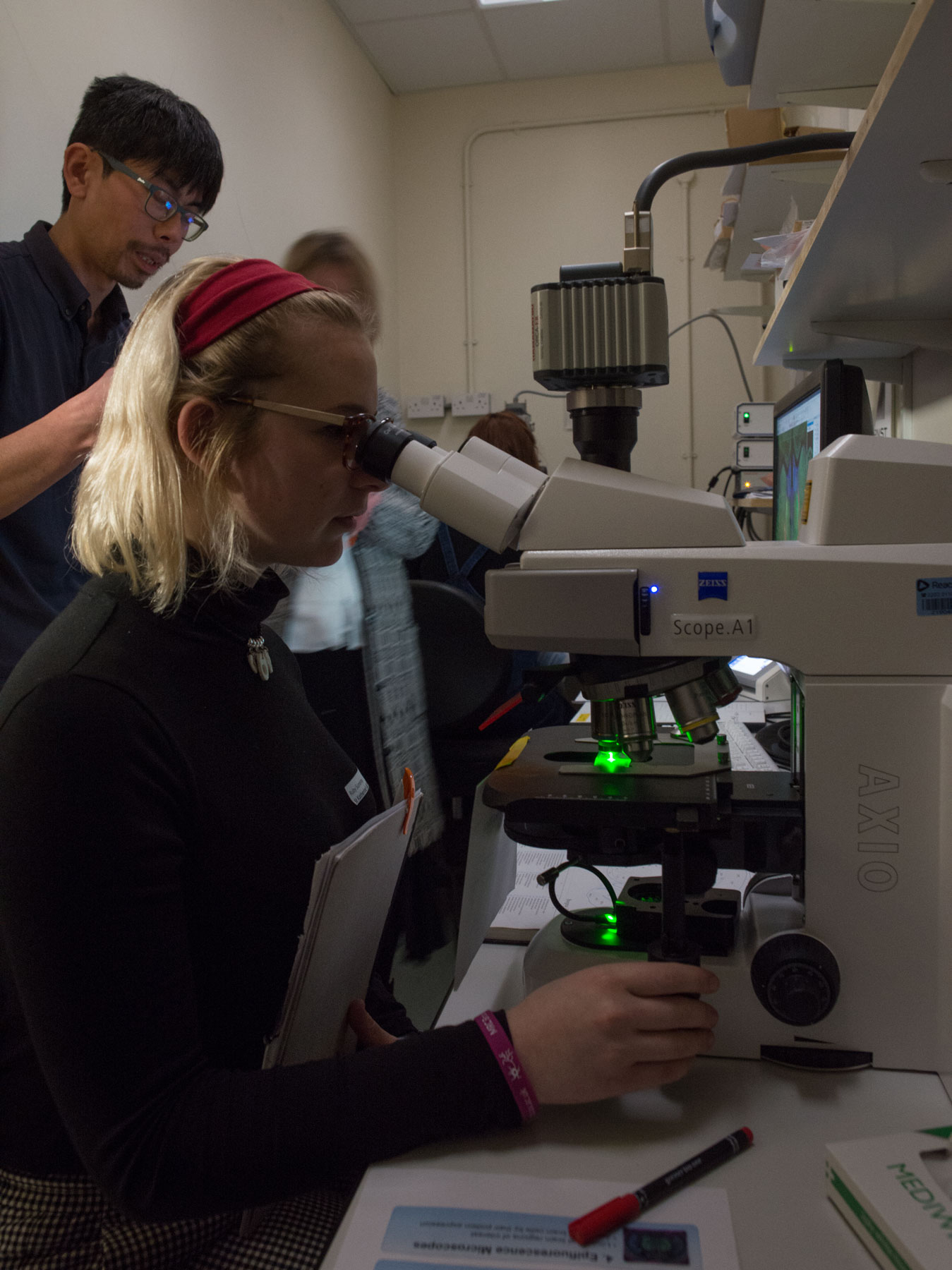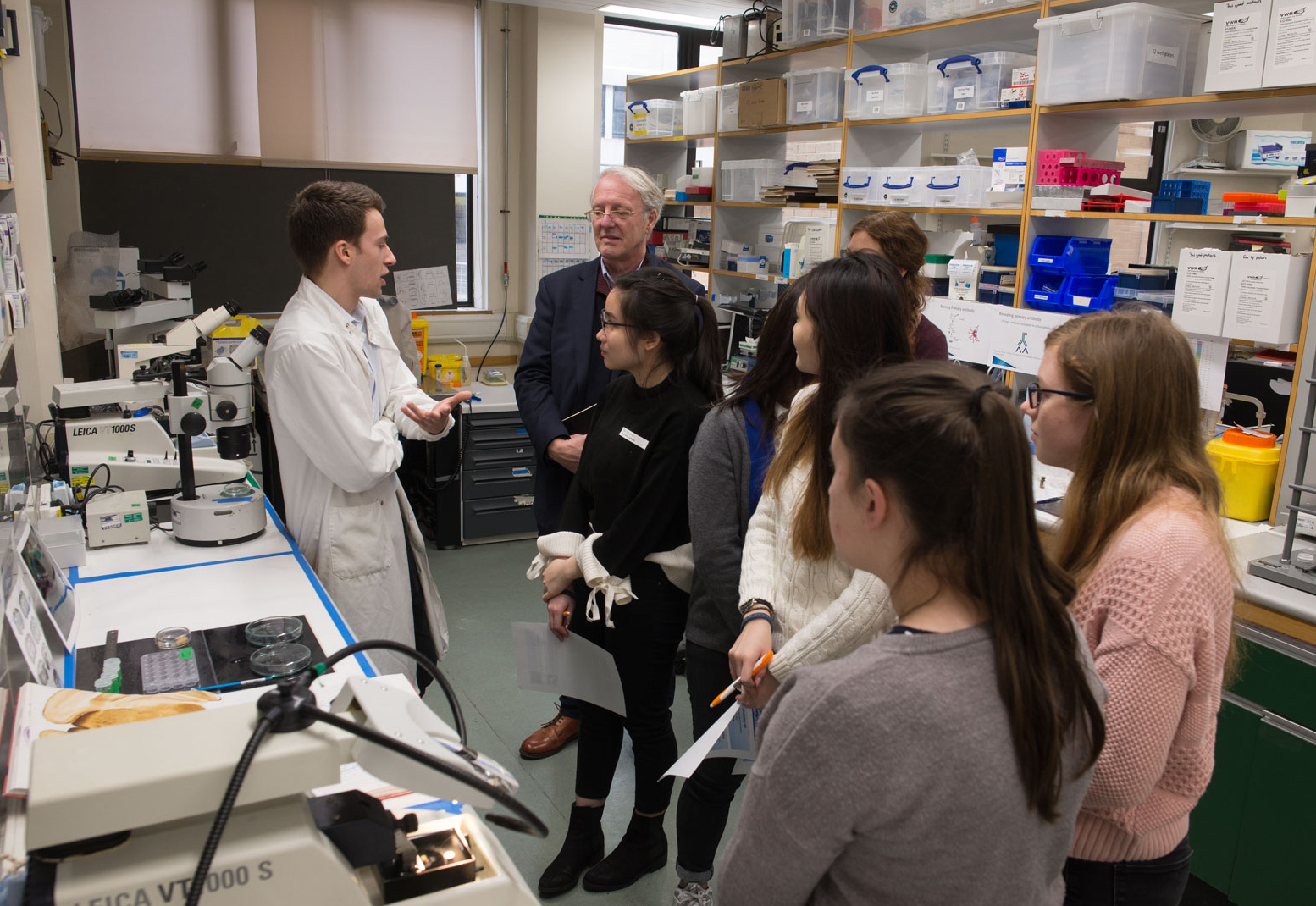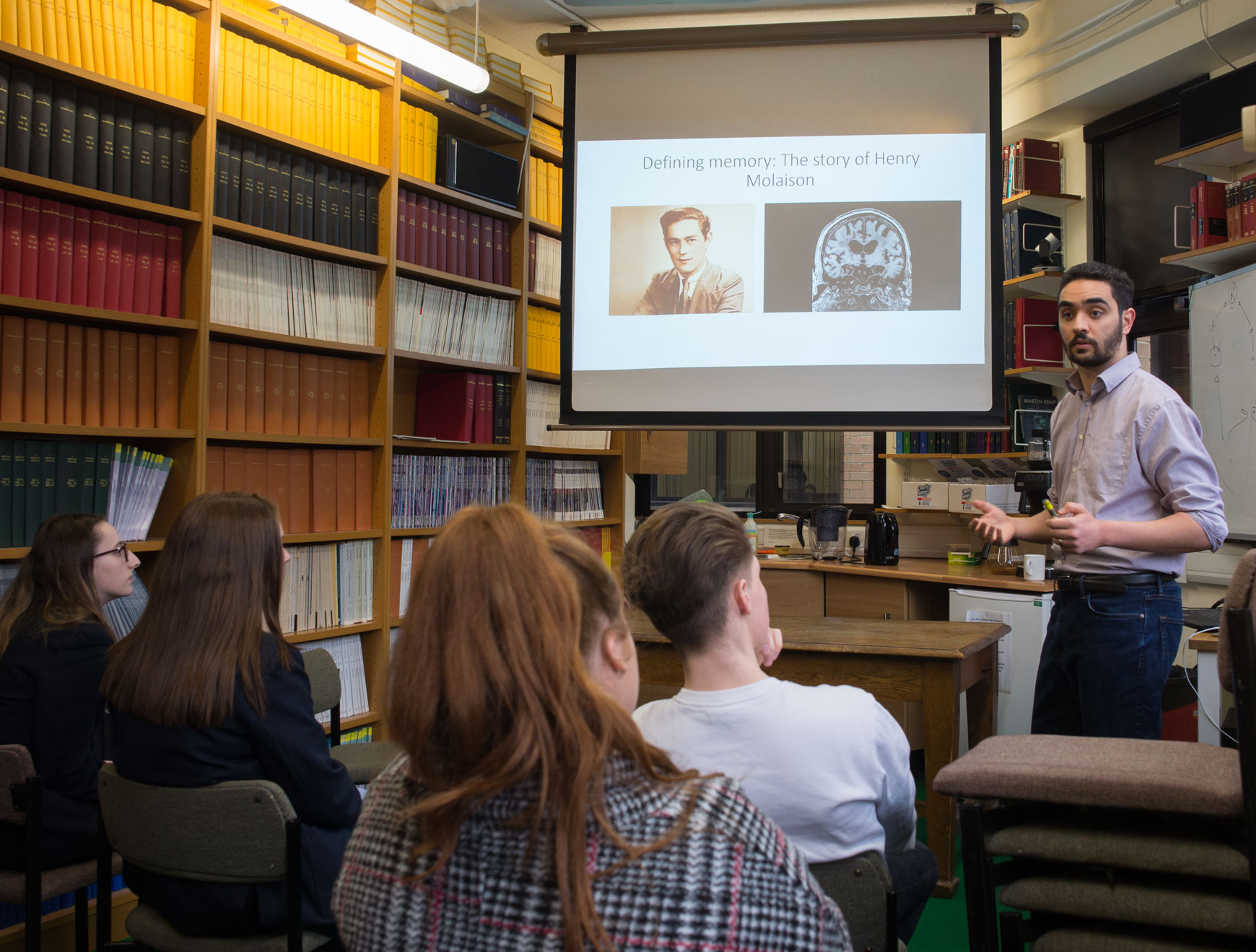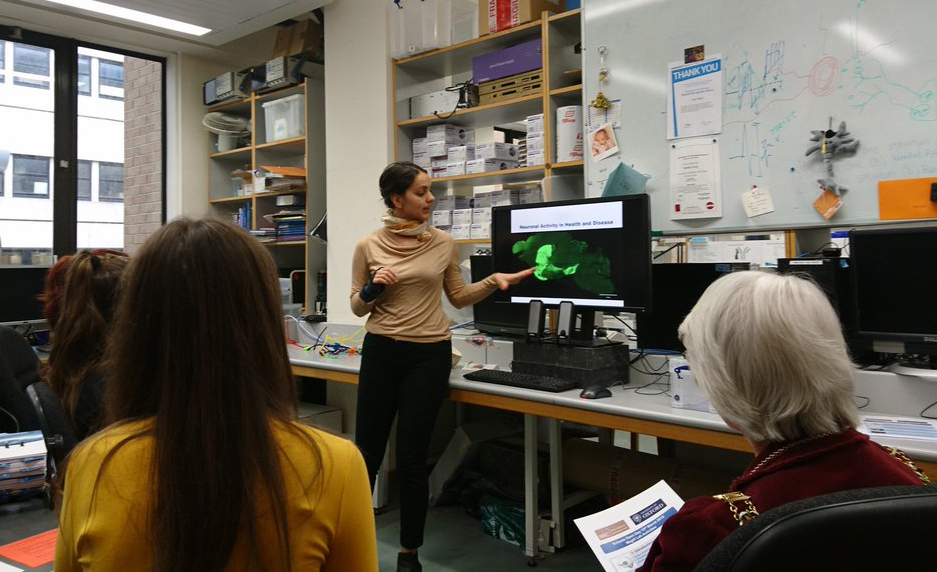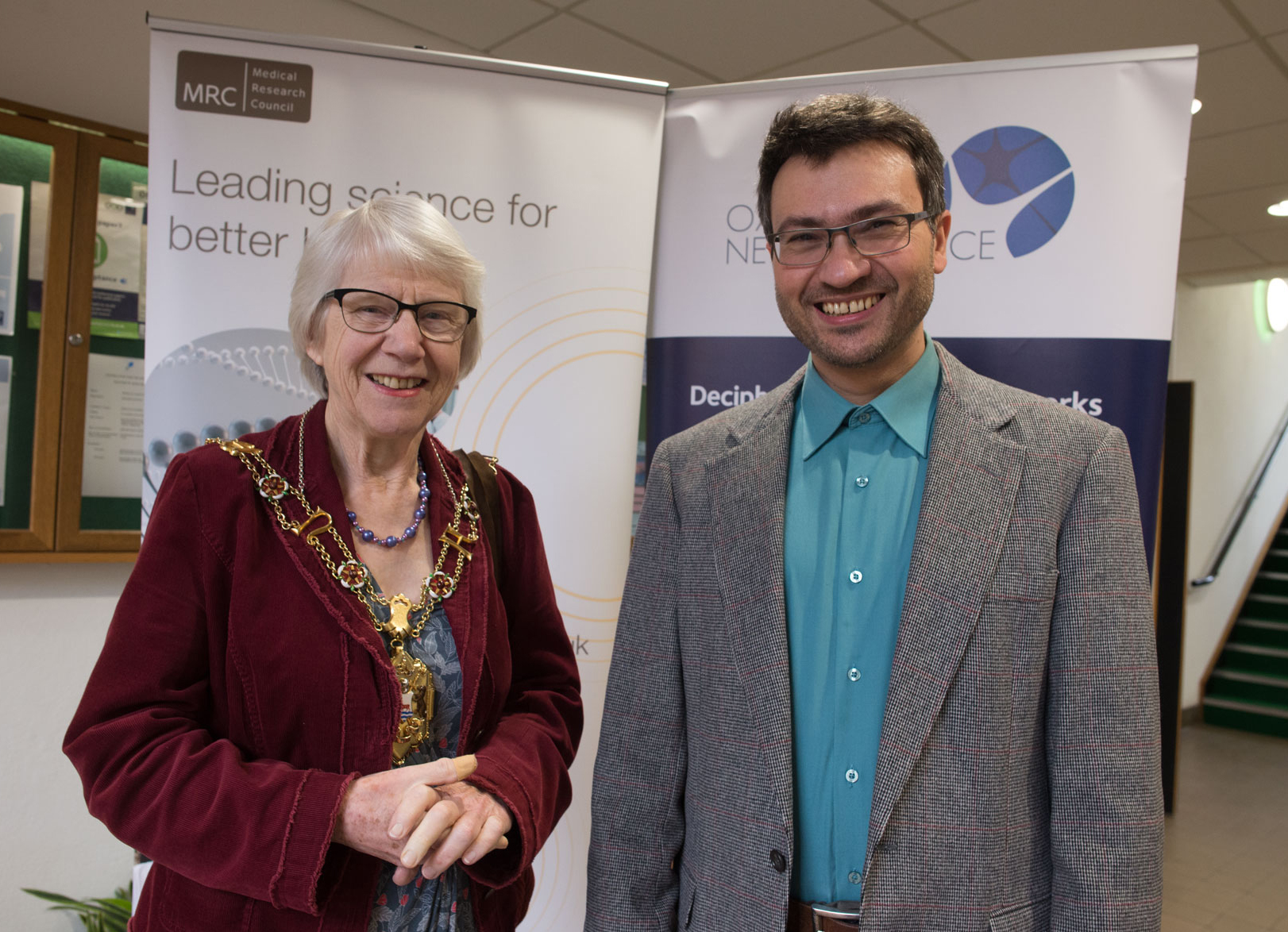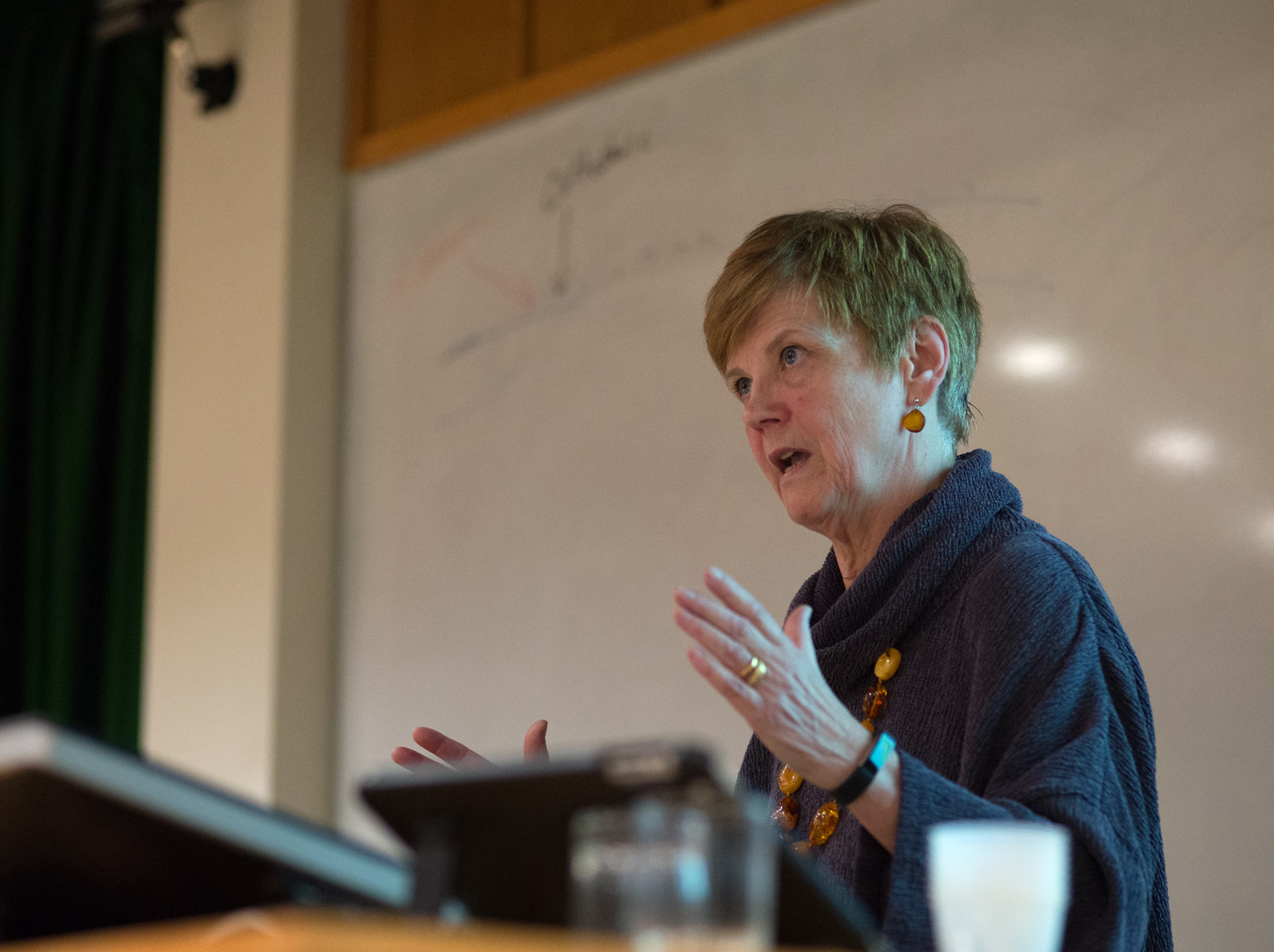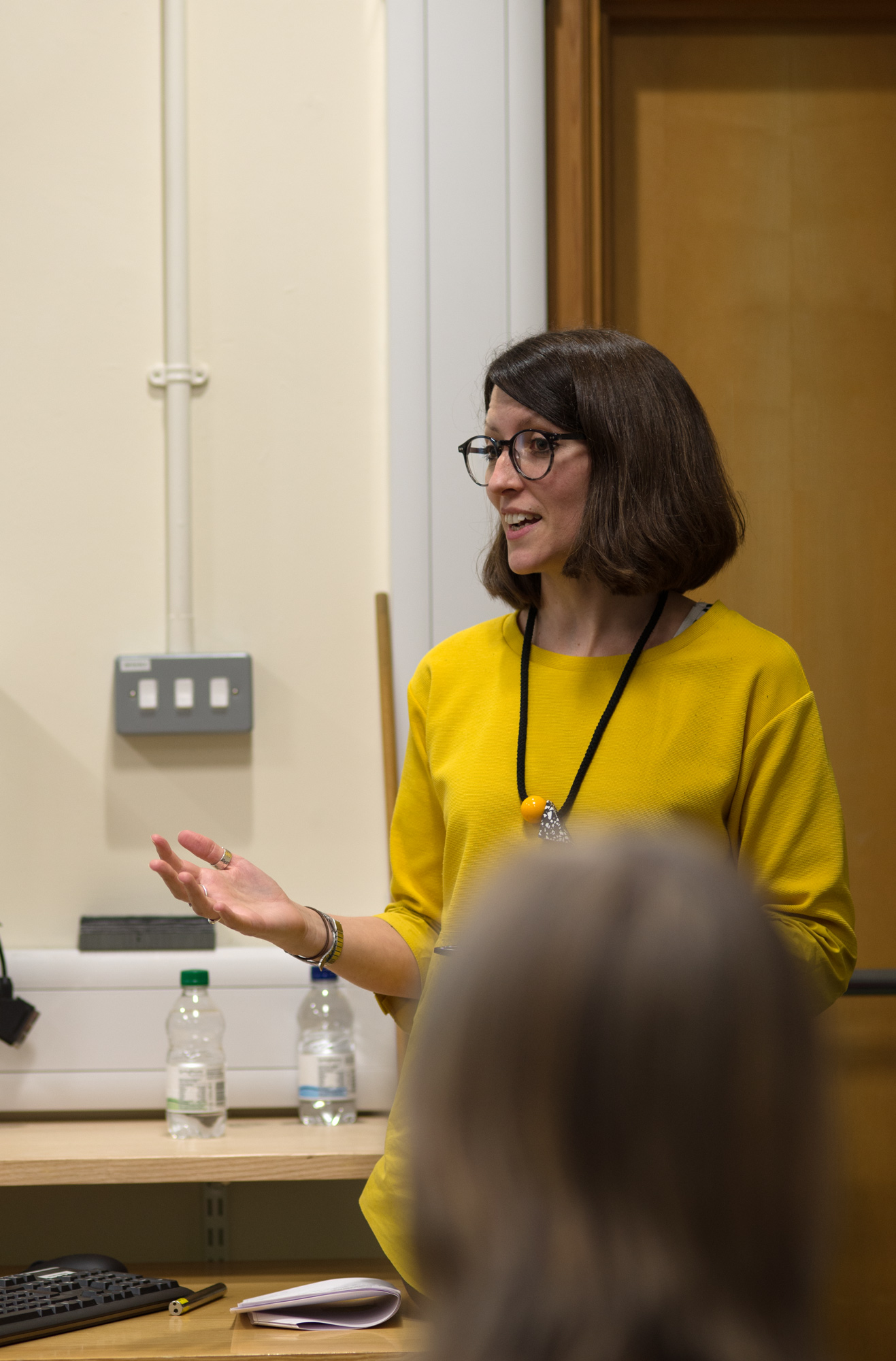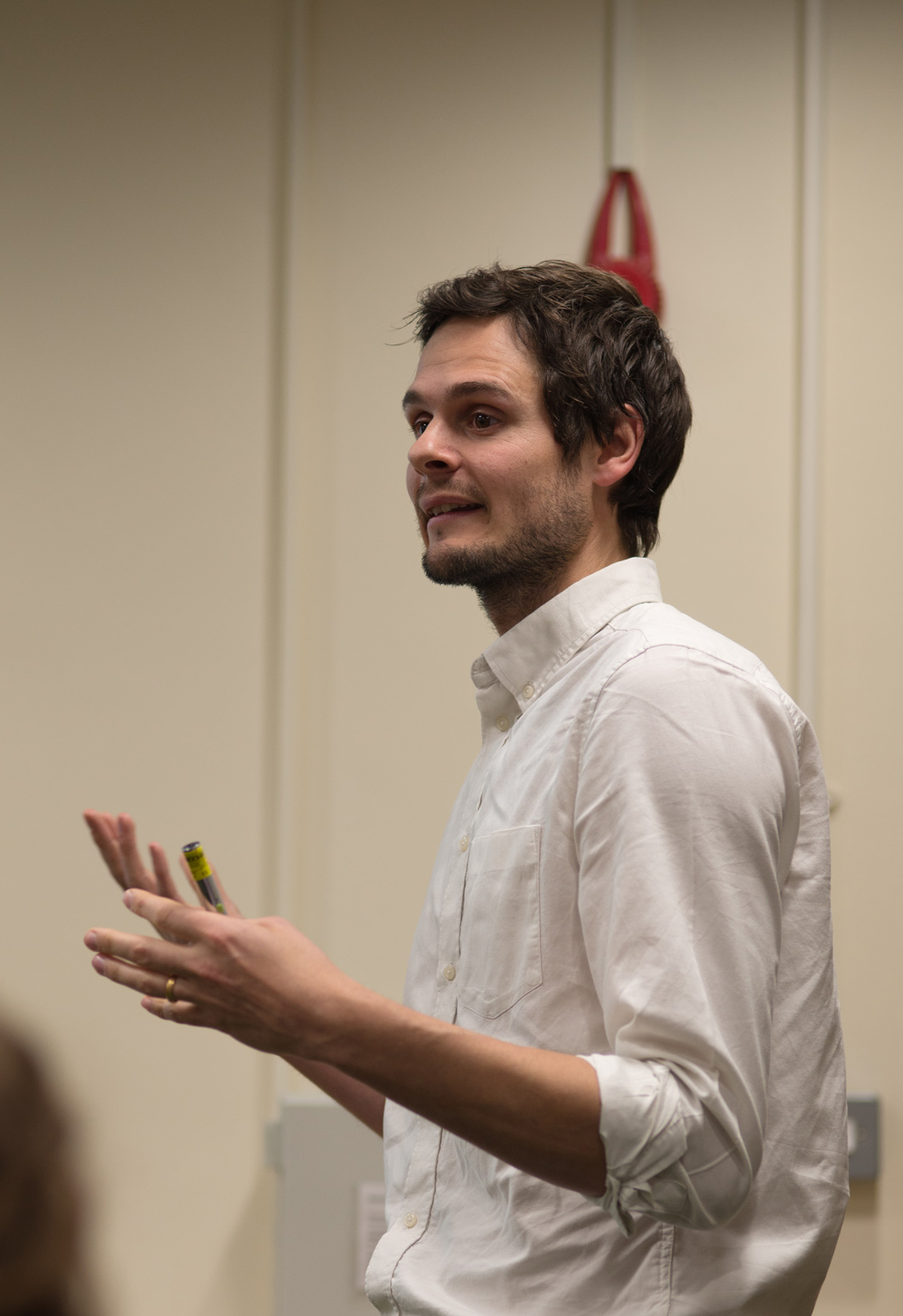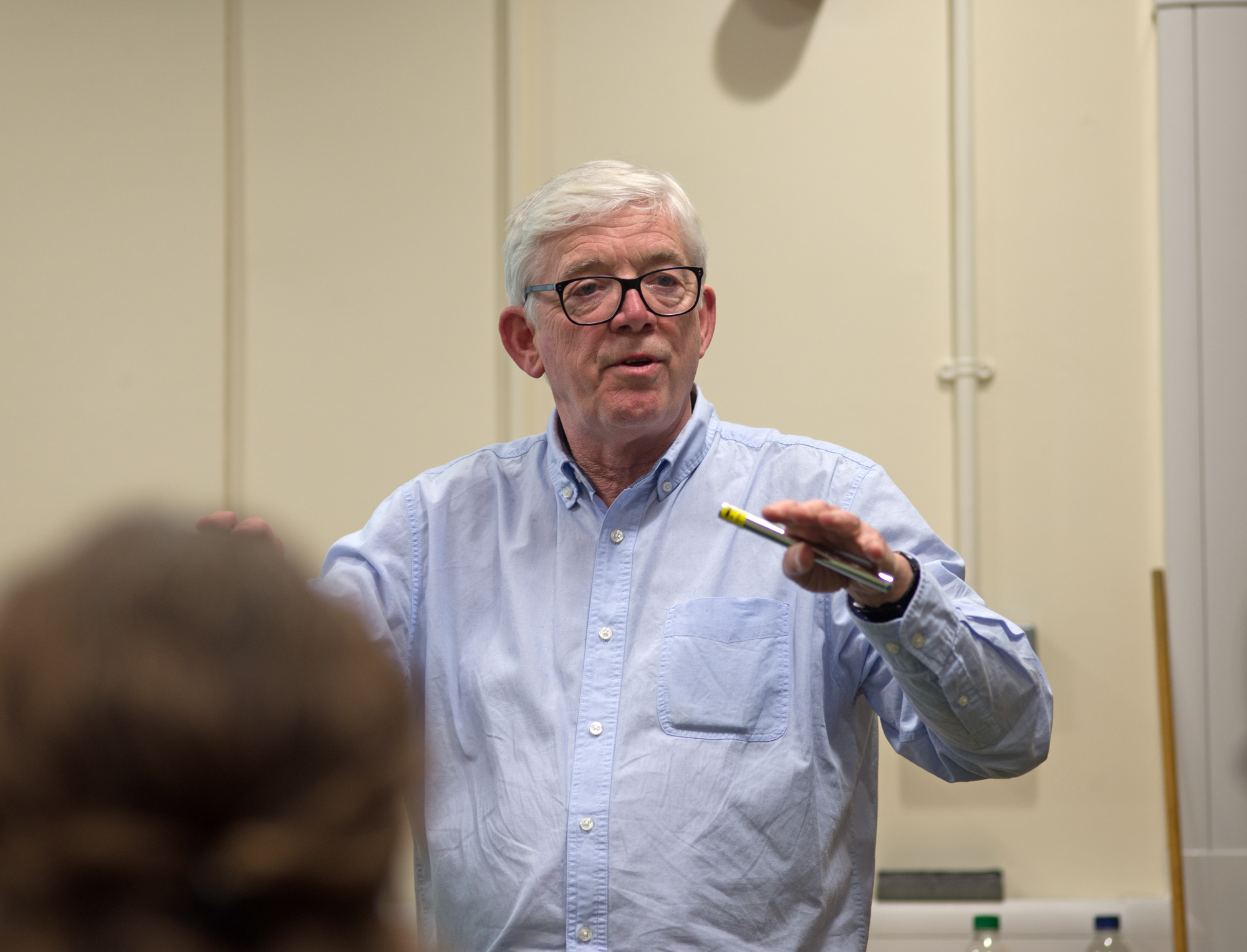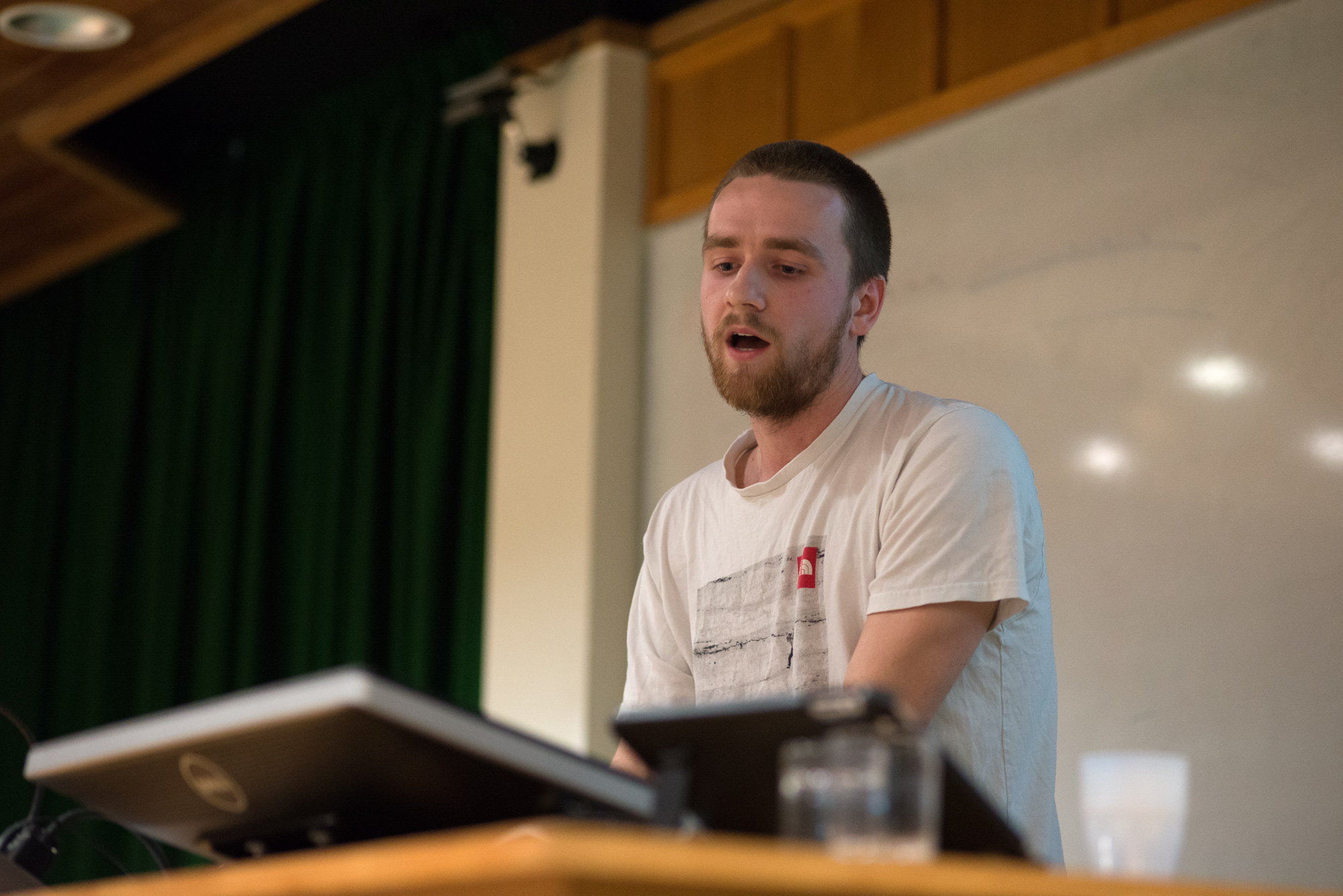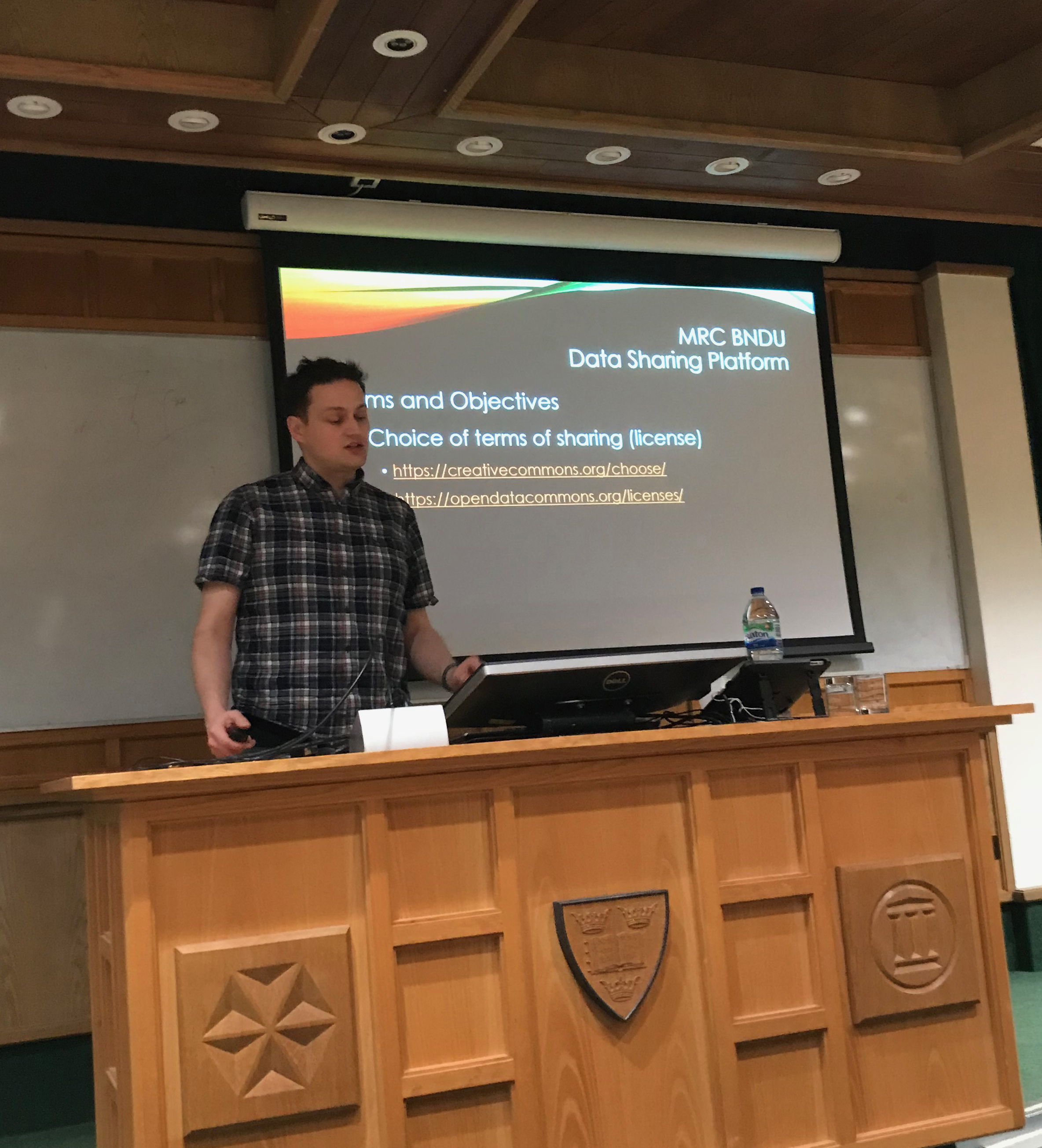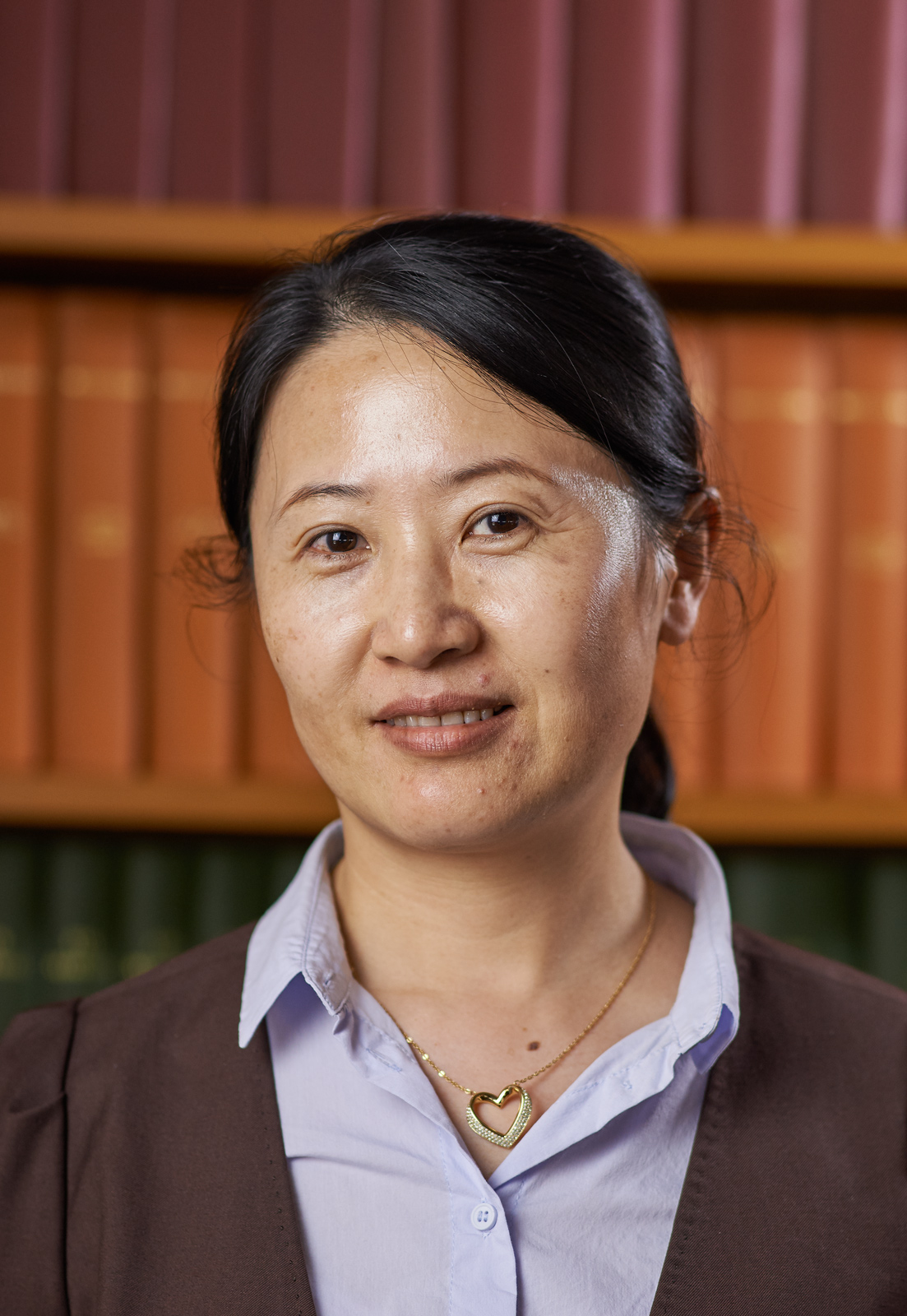
We are pleased to welcome Dr. Chunyan Cao to the Unit as a Visiting Research Fellow. Chunyan has joined Professor Peter Brown’s Group, where she will be supervised by Dr Huiling Tan.
Chunyan’s visit is funded by the Affiliated Ruijin Hospital, Shanghai Jiao Tong University in Shanghai, China, where she works as a neurologist and neurophysiologist in the Department of Functional Neurosurgery. Her academic interest is the mechanism of deep brain stimulation treatment, as revealed by magnetoencephalographic and local field potential recording studies. During her stay in the Unit, Chunyan will primarily design protocols for collaborative clinical studies upon her return to China and learn relevant signals analysis techniques.
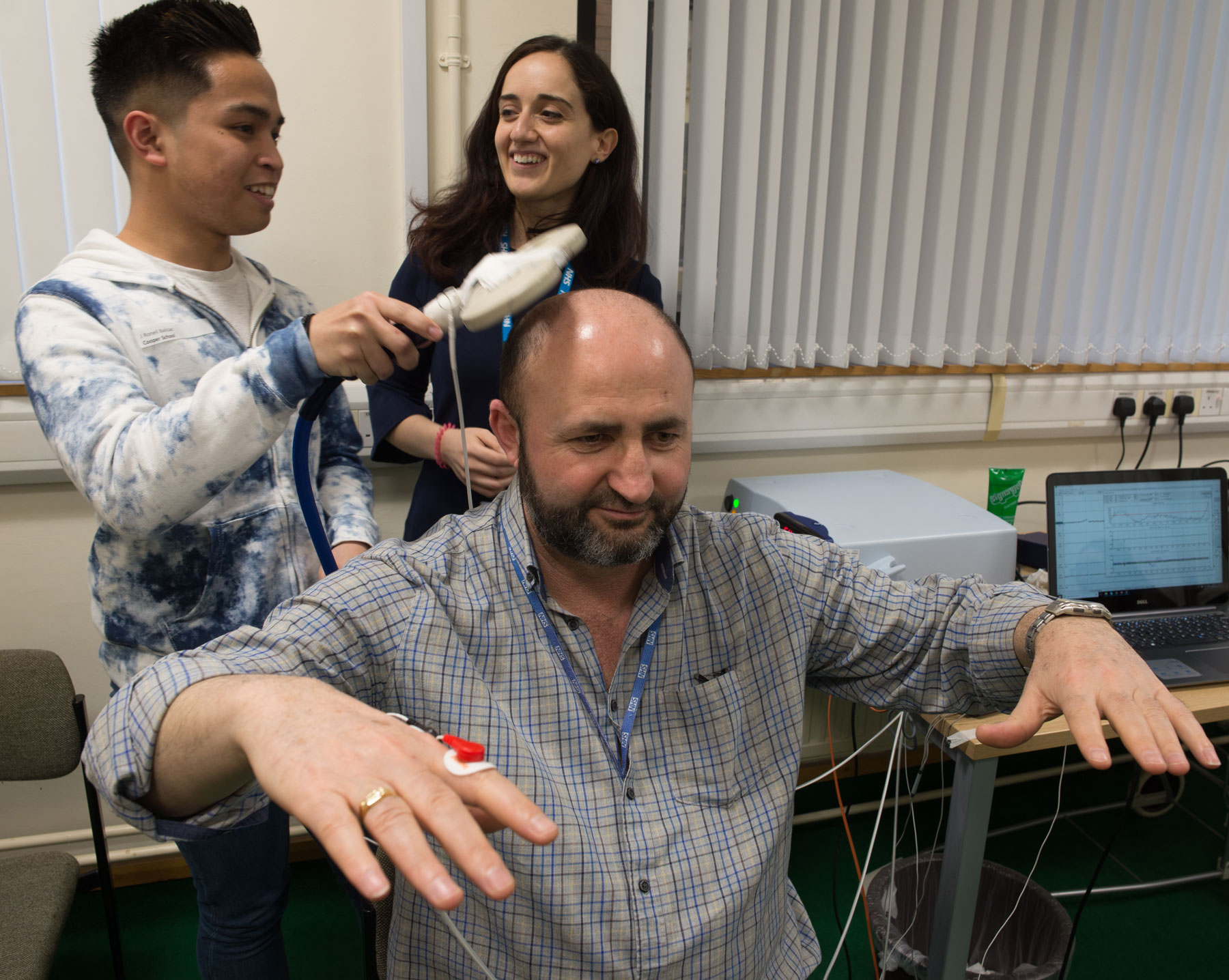
On 15th March, the MRC Brain Network Dynamics Unit welcomed pupils, teachers and local Councillors to its annual Schools Open Day.
Almost 100 pupils and their teachers, from 7 state-funded and private schools in Oxford city and wider Oxfordshire, took the opportunity to visit and learn more about STEM (science, technology, engineering and mathematics) at the MRC Unit. During their visits, pupils in small groups talked informally to Unit members about key concepts and challenges in brain research, as well as what it is like working in STEM. Special emphasis was also placed on giving pupils the opportunity to try some ‘hands on’ science and to see real working instruments and laboratories for themselves. Activities were coordinated around 6 ‘knowledge stations’, at which pupils could experience some of the Unit’s core research themes, including human brain stimulation, computer modelling of brain function, the brain in health and Parkinson’s disease, electrical activity in the brain, the nerve cell networks of memory, and the use of animals in medical research. At the end of the visit, pupils had refreshments and were given souvenirs to take home.
The Lord Mayor of Oxford, and local Councillors Elizabeth Gillespie and Chris Wright, also visited to learn more about the brain research carried out at the Unit.
Unit Deputy Director Peter Magill commented “Unit members were delighted to share their work with visitors, who in return were clearly enthusiastic and involved. Another fantastic Schools Open Day at the MRC BNDU. ”
The Unit’s Schools Open Day was one of many engaging events held at the University of Oxford during Brain Awareness Week 2018.
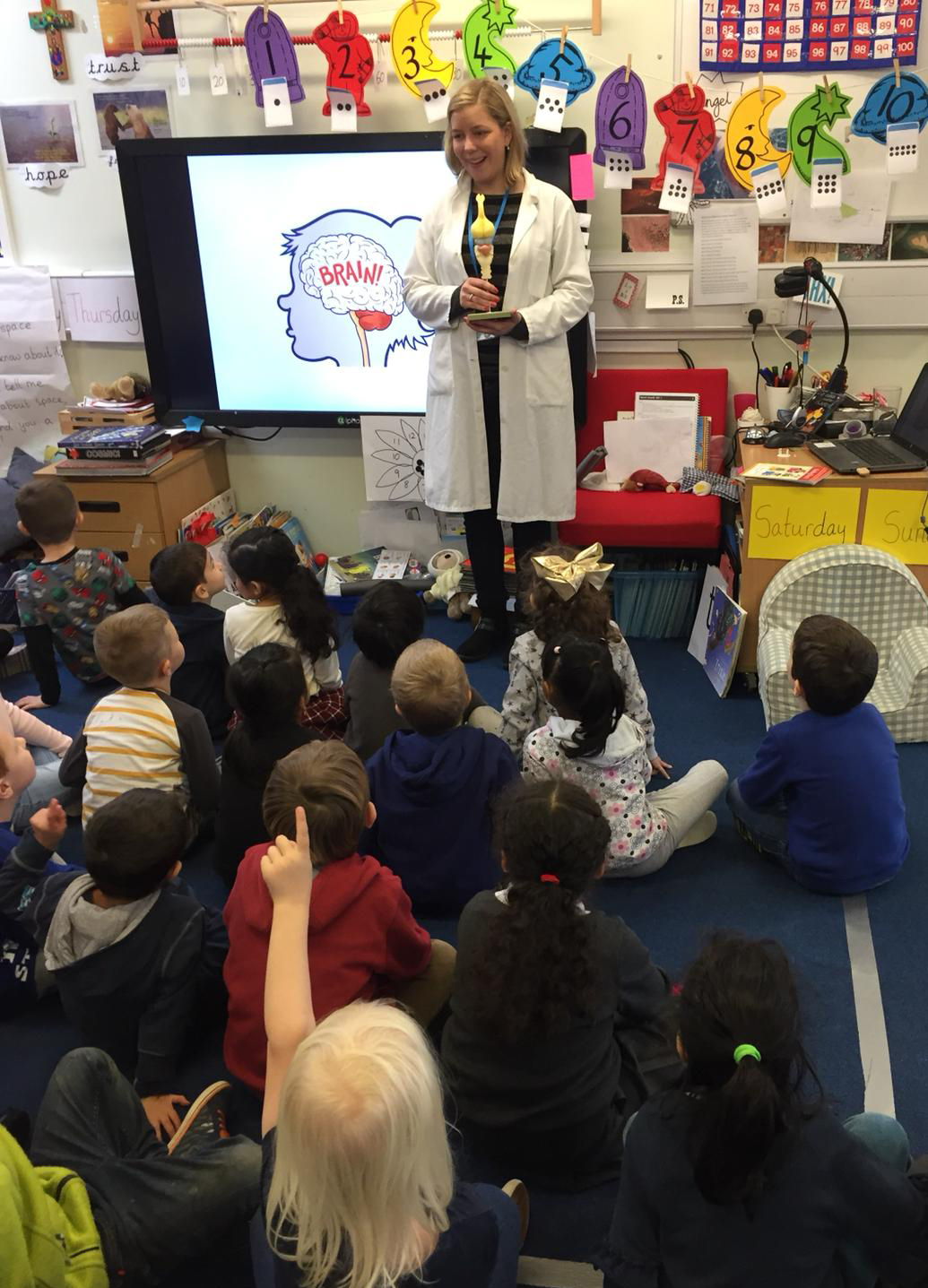
Unit scientists Dr Natalie Doig and Dr Abbey Holt recently visited pupils at St Andrew’s C. of E. Primary School in central Oxford, to help them learn more about science, scientists, and how the brain works.
The visit was made in support of the state-funded school’s inaugural STEM Festival, a deep-learning week created to deliver a variety of interactive experiences to each year group, including off-site and in-school activities, and opportunities to meet professionals working in STEM (Science, Technology, Engineering and Mathematics).
Armed with a variety of eye-catching demonstration aids taken from the Unit’s Public Engagement Toolbox, Natalie and Abbey spent a morning with the 4 and 5 year-old children in the Rainbows and Sunflowers classes. After Natalie introduced what a scientist is and does, the children were guided through a series of games that were designed to highlight how the brain controls memory and movement. The children then compared plastic animal brains, and took turns at wearing the ‘Brain Hat’, with the goal of learning that different parts of different brains do different things. Natalie and Abbey then helped the children to build colourful pipe cleaner models of nerve cells, eventually connecting the model nerve cells in long strings to ‘pass messages’. At the end of the session, the children were encouraged to don some rubber gloves and explore the Unit’s brain tissue specimens for themselves.
Natalie commented: “The children at St Andrew’s were wonderful; they were enthusiastic, involved and asked lots of great questions – I think they enjoyed the visit as much as I did!”
Abbey commented: “Visiting St. Andrew's was a great experience - the children were so curious and engaged in the different activities. At the end of the visit, the children shared what they had learned, and I was very impressed!”
School teacher Kelly Faye commented: “Many parents came to speak to me to report how excited their children had been when recounting the visit after school. The children mentioned what our brains are for and were especially excited at having touched a real brain.”
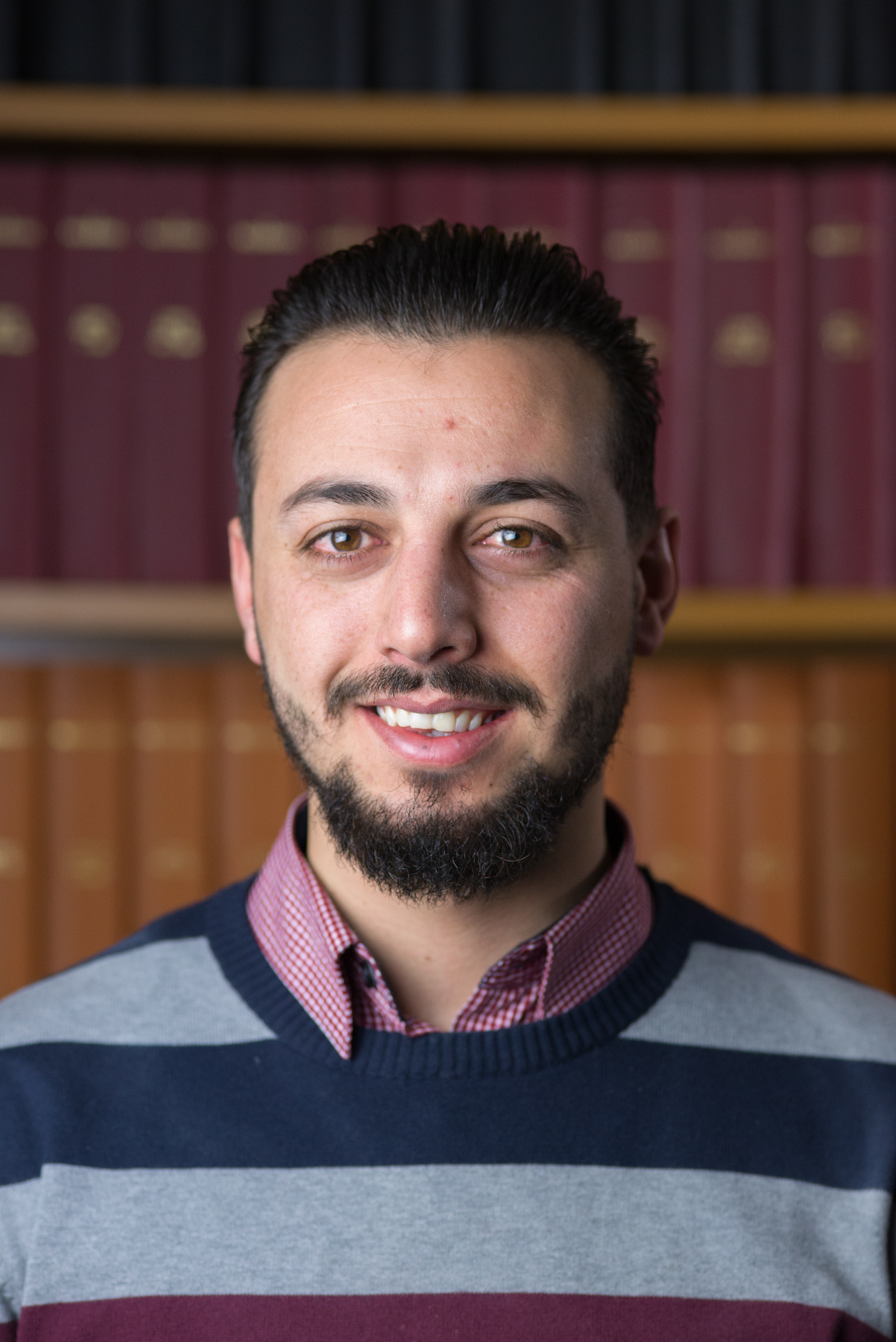
We are pleased to welcome Saed Khawaldeh to the Unit as a student on the Erasmus Mundus Joint Master Degree in Medical Imaging and Applications. Saed has joined Professor Peter Brown’s Group, where he is supervised by Dr Syed Ahmar Shah and Dr Gerd Tinkhauser.
Saed is a Bachelor of Science in Electronics and Computer Engineering, Al-Balqa` Applied University (Jordan) where he graduated with highest honours. Since then Saed has completed research internships at the MIT Media Lab (U.S.A.), the National Magnetic Resonance Research Center (Turkey), MPI for Biological Cybernetics (Germany), and NASA Medical Informatics Dept. (U.S.A.). His main research areas of interest are Nanotechnology, Neurotechnology and Machine Learning. Saed will be applying machine learning techniques on local field potential data from patients in order to improve the predictive value of such data in identifying optimal stimulation targets.
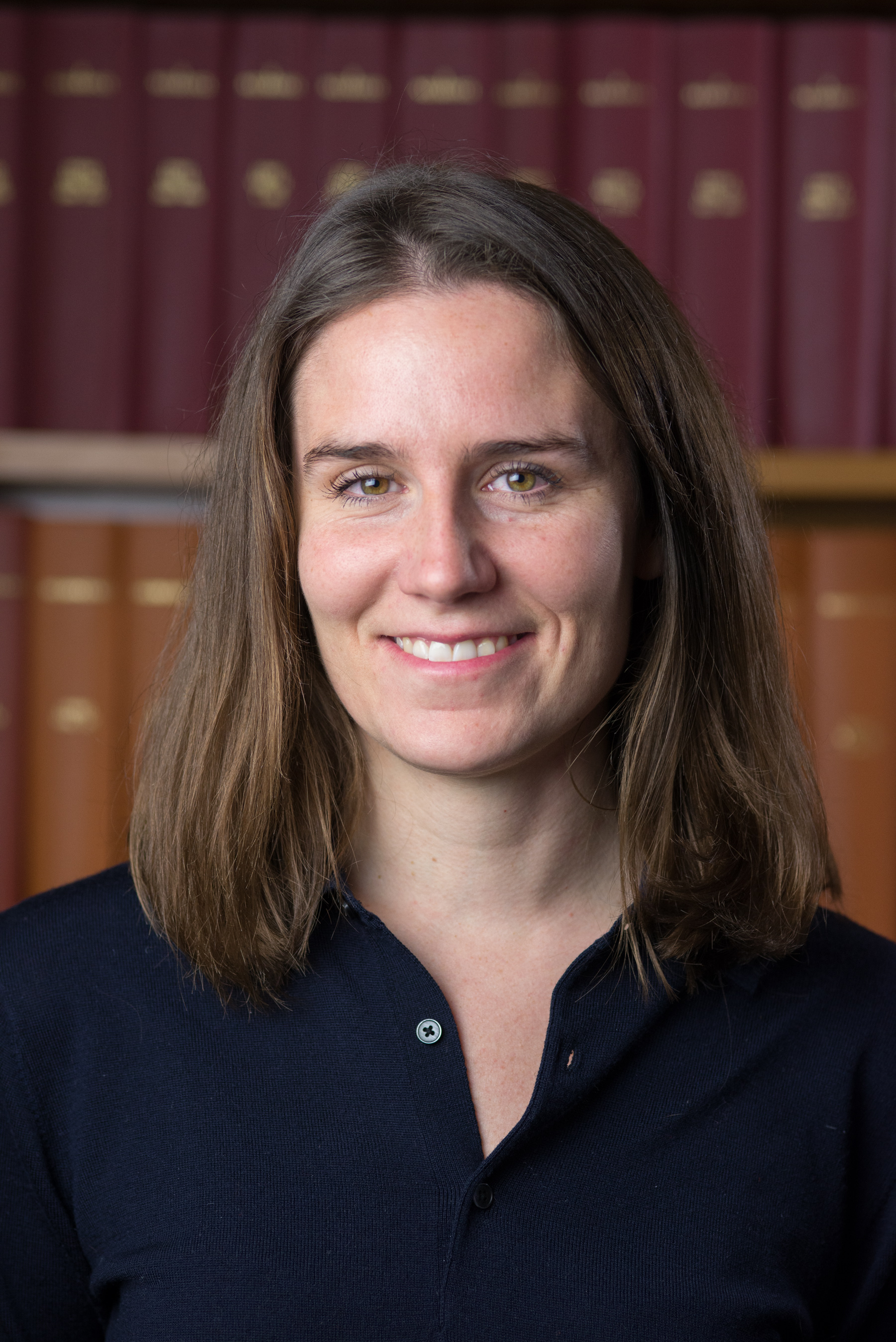
We are pleased to welcome Dr. Roxanne Lofredi to the Unit as a Visiting Research Fellow. Roxanne has joined Professor Peter Brown’s Group, where she will be supervised by Dr. Huiling Tan.
Roxanne’s visit is funded by a scholarship from the German Academic Exchange Service (DAAD). Roxanne is a neurologist, affiliated to the Movement Disorders and Neuromodulation Unit directed by Prof. Andrea Kühn at Charité – Universitätsmedizin Berlin. Roxanne graduated in medicine from the medical universities Berlin and Heidelberg, after having obtained a degree in Psychology from the University Paris 8. Before pursuing her interest in human neurophysiology, Roxanne completed her medical thesis on single-cell electrophysiology within the spatial navigation system in Prof. Miles group at ICM Paris. With Prof. Kühn, she worked on movement-related activity in subcortical structures of Parkinson’s disease patients. During her stay, Roxanne will further investigate the reciprocal relationships of different oscillatory patterns in movement control.
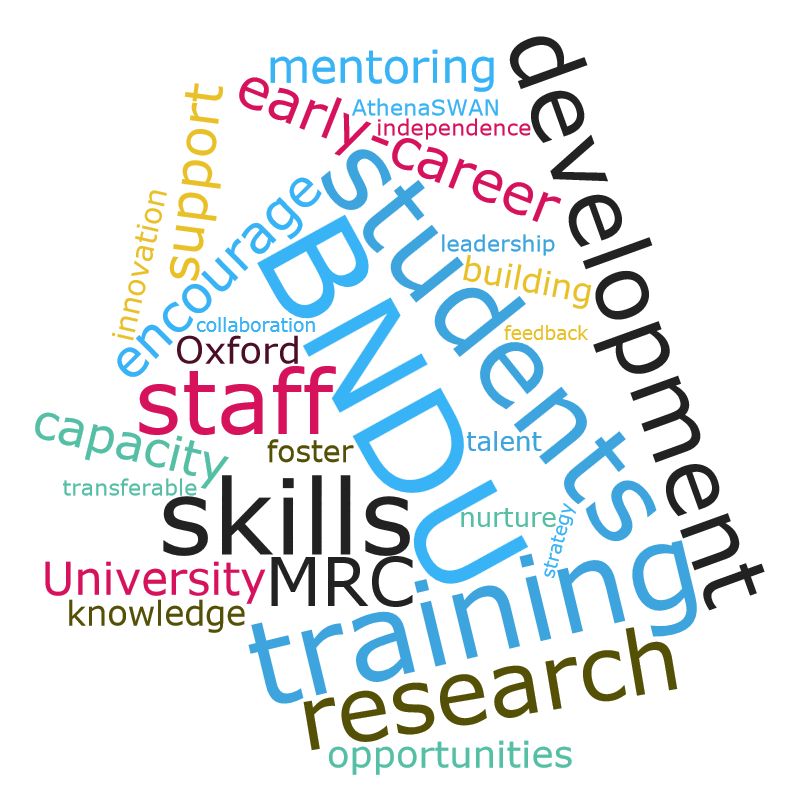
The Unit held its annual Training & Careers Development Event on Friday 26th January. Unit members and Oxford colleagues were treated to a range of engaging and enlightening presentations, each of which was followed by a lively Q & A session.
Professor Dorothy Bishop of the University of Oxford started the Event with an insightful account of the importance and challenges of data reproducibility. Unit Research Support Manager Ben Micklem then revealed the progress made on the Unit’s new Data Sharing Platform, laying down a challenge to the audience to help shape its future. In a related follow-on talk, Unit student Alex Morley gave some timely advice on how best to manage data and code. Unit Administrator Dr Vivienne Collins completed the general session by reiterating the resources available to support good research practice. In the first of two break-out workshops held after refreshments, Professor Paul Bolam, Associate Unit Member and Co-Editor-in-Chief of the European Journal of Neuroscience, led a training session on effective peer reviewing. In the second workshop, Dr Megan Dowie, Programme Manager at the Medical Research Council, and Dr Matthew Brown, Science Portfolio Adviser (Neuroscience and Mental Health) at the Wellcome Trust, narrated their career trajectories and gave their personal perspectives on working in research funding agencies. This was supplemented with some valuable advice on grant and fellowship applications at their respective organisations.
Peter Magill, Chair of the Unit’s Research Training & Career Development Committee, commented “The provision of bespoke training and career support continues to be a priority for the Unit. We are most grateful to our expert speakers, and we look forward to meeting the challenges ahead.”

Last week, Unit members gathered to bid a fond farewell to Dr Jennifer Kaufling as she leaves the Unit to take up her new tenured position of principal investigator (Chargé de Recherche) at the Institute of Cellular and Integrative Neurosciences in Strasbourg, France.
Jennifer has been working as part of the Magill Group, where she has spearheaded the development of a powerful in vivo approach for testing the effects of optogenetic manipulations on the electrical activity of identified neurons in the basal ganglia. Her discoveries are of particular importance for understanding the contributions of distinct cell types to neuronal network dynamics in the external globus pallidus.
Jennifer’s mentor, Peter Magill, commented "It has been a pleasure and a privilege to host Jennifer in the Unit for her postdoctoral training and career development. Jenny is a hugely talented neuroscientist and an exemplary collaborator, and I look forward to exploring further opportunities to work together as Jenny establishes her independent research programme in France. We will all miss working with Jenny in the Unit, but it is a comfort to know that it is ‘au revoir’ and not ‘goodbye’."
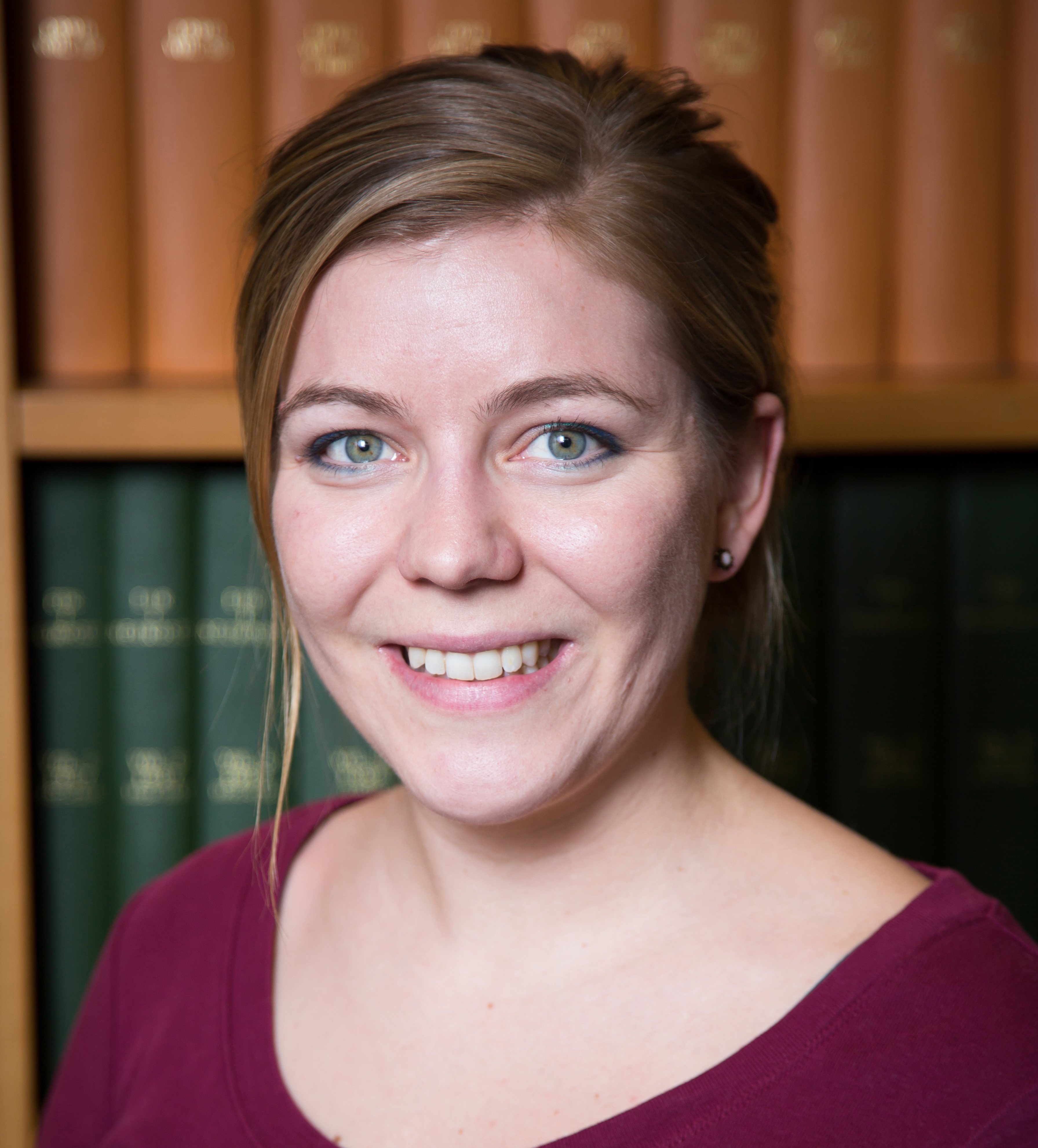
Many congratulations to Unit scientist Dr Natalie Doig on being elected as the next Student & Early Career Representative on the National Advisory Committee of the British Neuroscience Association.
The British Neuroscience Association (BNA) is the largest UK organisation representing and promoting neuroscience and neuroscientists.
Natalie’s new role will include communicating the interests of students and early-career researchers to the Committee, advising the BNA Council on issues and activities of importance to these groups, and working on initiatives to assist BNA members with their career development.
Natalie commented “I am delighted to be given this exciting opportunity to serve on the National Advisory Committee. The BNA plays an important role in building capacity in neuroscience within the UK and beyond. I believe that supporting students and researchers at the beginning of their careers is vital to this. I look forward to playing my part in representing and furthering the interests of these researchers.”
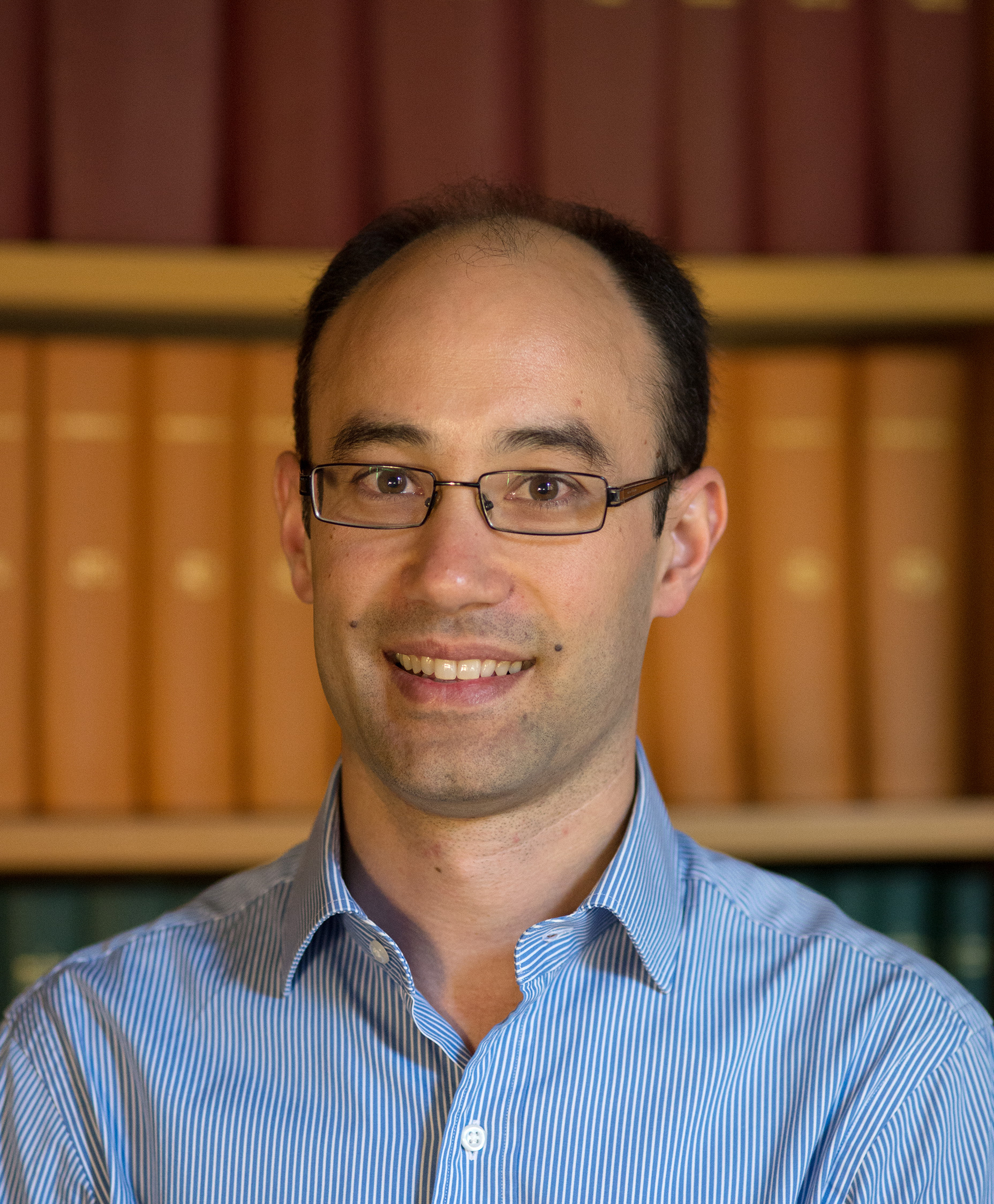
Congratulations to Unit Programme Leader Dr David Dupret who is to receive funding to initiate collaborative work with neuroscience researchers in Canada and Switzerland.
David will be working with Dr Adrien Peyrache (Montreal Neurological Institute, McGill University) and Professor Benjamin Grewe (Institute of Neuroinformatics, ETH Zurich, ZNZ) on a joint project to examine the long-term hippocampal activity dynamics of a memory trace.
David’s new collaboration is supported by the Oxford-Brain[at]McGill-ZNZ Partnership in Neuroscience, a scheme founded in 2013 to foster research synergies between groups with complementary infrastructure, knowledge and technical expertise.
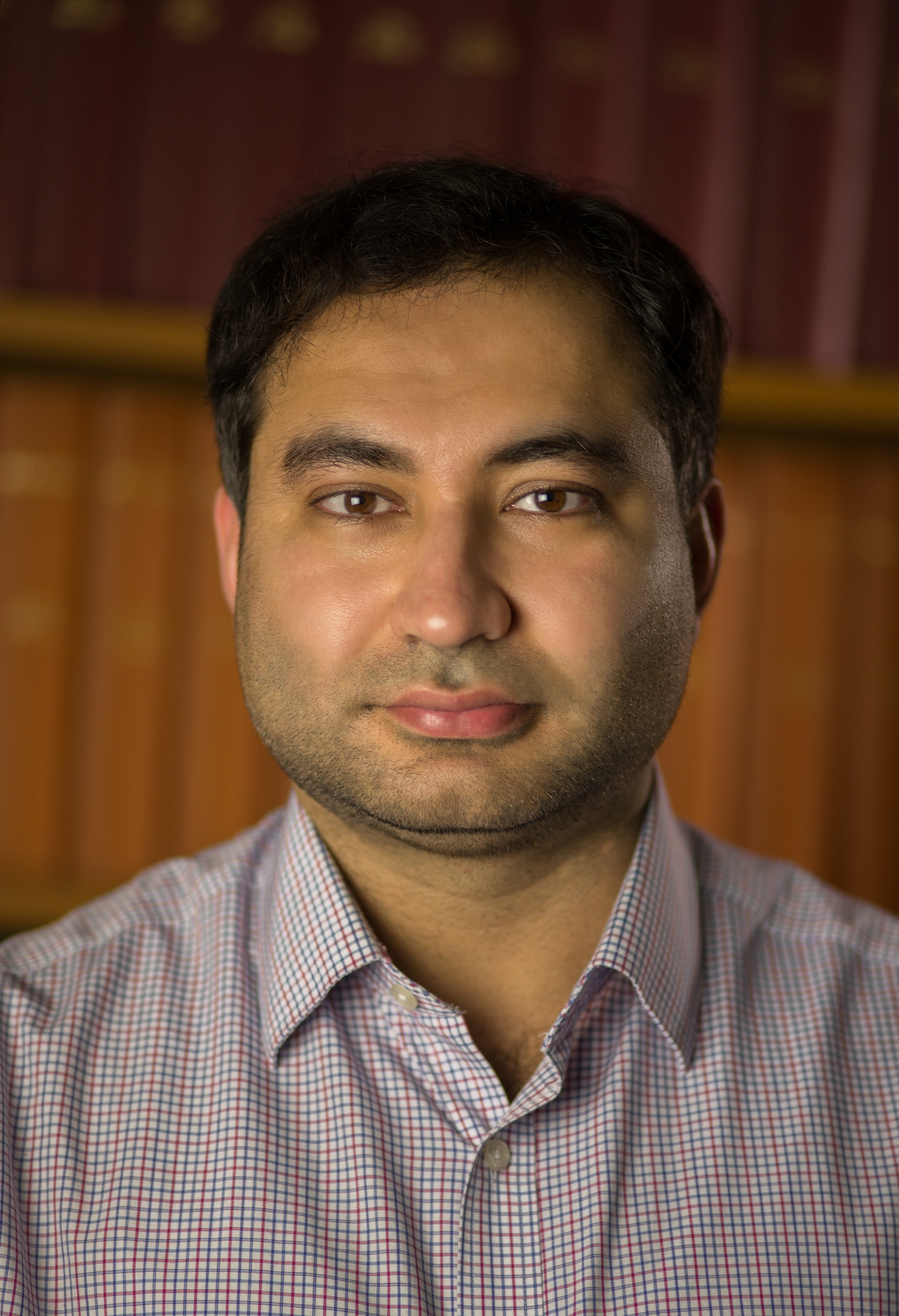
Many congratulations to Unit scientist Dr Syed Ahmar Shah who has been awarded a Chancellor’s Fellowship at the University of Edinburgh. These highly competitive 5-year Fellowships are designed to attract and support talented researchers at the start of their independent academic careers. Ahmar will take up his new post at the Usher Institute of Population Health Sciences and Informatics in July 2018.
Currently, Ahmar is a postdoctoral researcher in Professor Peter Brown’s Group, where he has helped exploit machine learning to decode movement intentions from electrical signals recorded deep in the brain. These advances are being leveraged in the Unit’s ongoing work developing novel brain-computer interfaces that are designed to improve function and communication in people with movement difficulties. In his new post in Edinburgh, Ahmar will focus on applied informatics to aid clinical management and diagnosis.
Unit Director Peter Brown commented: “We are thrilled for Ahmar. His success and transition to independence are a fitting testament to the Unit’s commitment to excellence in the research training and career development of its membership.”
